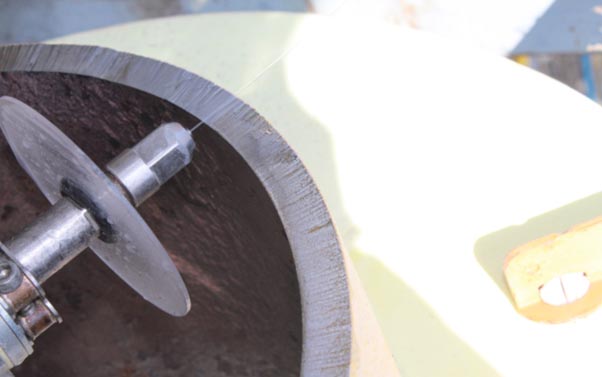 By Gerry McNulty, Business Development Manager
By Gerry McNulty, Business Development Manager
I am often asked about DIAJET’s track record and experience in cutting underwater, in particular for removing subsea structures. As I was gathering our digital information for our participation in SNS2020, I came across an old VHS tape. If ever a picture paints a thousand words, this is it.
Subsea Cutting Application
The video shows our waterjet cutting equipment making light work of removing Shell’s Single Anchor Leg Mooring (SALM) Buoy. The work was part of the overall decommissioning of the Fulmar floating storage and offloading facility in the UK North Sea.
Performed in 1994, the work was carried out using a 350bar DIAJET located on board a ship positioned a few 100 metres from the buoy. A single hose from the ship supplied the water-abrasive mixture to the cutting nozzle at the base of the buoy in a water depth of around 75m.
The nozzle was manipulated to achieve the required cutting line by utilising a number of track systems developed specifically for the project and cut a total of 24 metres of 65mm to 75mm thick steel plate.
Quantifiable Results
The result of the cutting process was the ultimate breakaway of the Fulmar SALM Buoy from its fixed seabed base as this spectacular, though grainy, footage shows.
Pound for pound DIAJET is the most powerful waterjet cutting system around. A versatile design, together with our wealth of experience, means we have tackled many different challenges, ranging from explosives ordnance disposal to hot tapping for plant maintenance.
Delivering Value
Back to the present day, investment in improving our technology and the experience of our people, has enabled us to successfully deliver solutions to support clients decommissioning activities in other complex environments, such as the Nuclear industry, where we’re currently working with clients such as Magnox and Sellafield.
If you’re looking at cutting in hazardous environments where alternative techniques just won’t work, then contact us.
